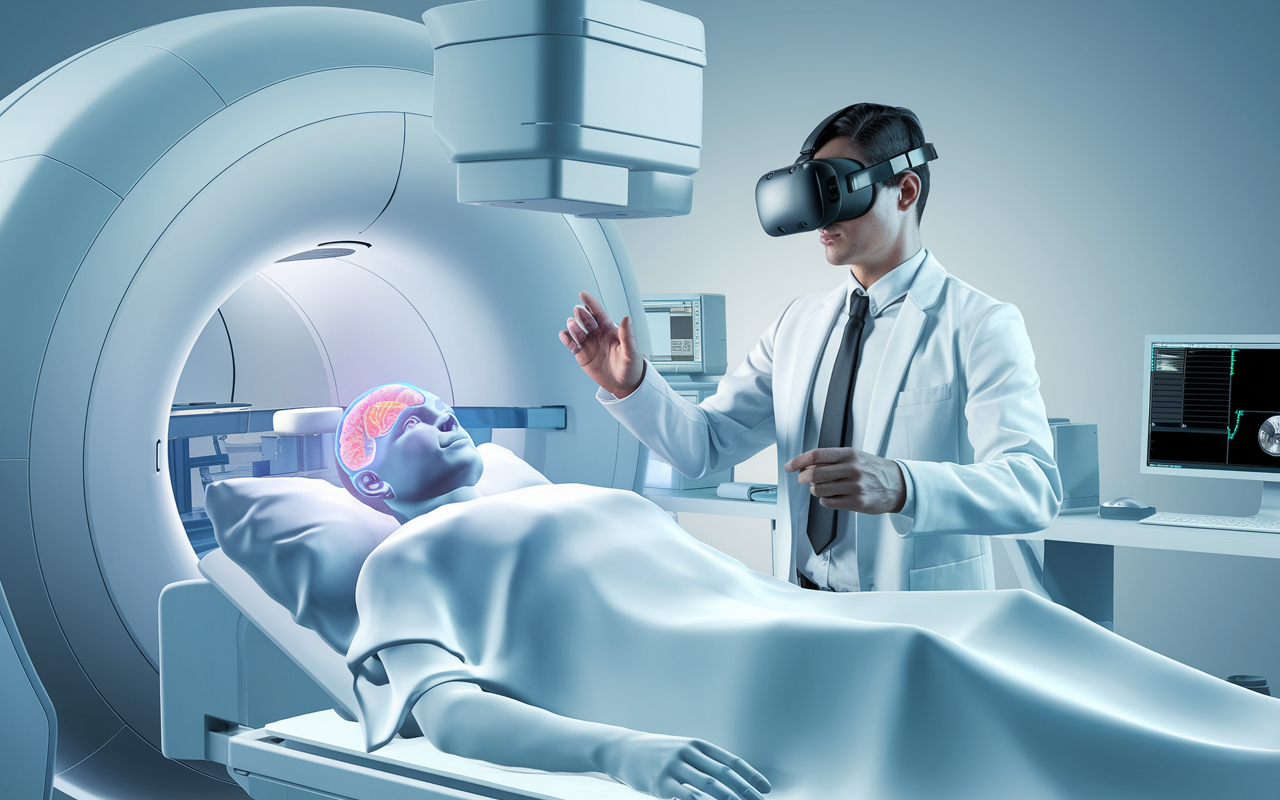Introduction
Neurological diseases encompass a wide range of disorders that affect the brain, spinal cord, and peripheral nervous system. These conditions can disrupt motor skills, sensory functions, cognitive abilities, and overall quality of life. With ongoing advancements in neuroscience, there is hope for better diagnosis, treatment, and management of these disorders. For those seeking accurate and up-to-date information, doctorhub360.com neurological diseases serves as a reliable resource, offering insights into causes, symptoms, and cutting-edge treatments.
Neurological disorders are among the leading causes of disability worldwide, affecting millions of individuals annually. Conditions such as Alzheimer’s disease, Parkinson’s disease, epilepsy, multiple sclerosis (MS), and stroke represent only a fraction of the spectrum. This article explores these diseases in depth, emphasizing the role of resources like doctorhub360.com neurological diseases in empowering patients and caregivers.
What Are Neurological Diseases?
Neurological diseases refer to disorders that impair the structure or function of the nervous system. These conditions can arise from genetic factors, infections, trauma, metabolic imbalances, or degenerative changes. While some disorders are acute, such as a stroke, others, like Huntington’s disease or amyotrophic lateral sclerosis (ALS), progress slowly over time. Resources such as doctorhub360.com neurological diseases help bridge the gap between complex medical terminology and accessible information for those affected.
The symptoms of neurological diseases vary widely depending on the affected region of the nervous system. Common symptoms include persistent headaches, seizures, memory loss, muscle weakness, numbness, and impaired coordination. Early recognition of these signs is crucial, as timely intervention can significantly impact disease progression and patient outcomes.

Common Neurological Diseases and Their Impact
Alzheimer’s Disease
Alzheimer’s disease, a leading cause of dementia, is characterized by progressive memory loss and cognitive decline. The buildup of amyloid plaques and tau tangles in the brain disrupts neural communication, leading to irreversible damage. For individuals and families navigating the complexities of Alzheimer’s, doctorhub360.com neurological diseases provide valuable guidance on early detection and caregiving strategies.
Parkinson’s Disease
Parkinson’s illness is a motion disarrangement brought about by the degeneration of dopamine-delivering neurons in the brain. Symptoms include tremors, rigidity, and slowed movement, which can worsen over time. Although there is no cure, resources like doctorhub360.com neurological diseases highlight therapies and medications that alleviate symptoms and improve patient’s quality of life.
Epilepsy
Epilepsy is a neurological condition described by repetitive seizures because of strange electrical action in the brain. Triggers and seizure types vary, making personalized treatment essential. Doctorhub360.com’s neurological diseases offer insights into the latest advancements in anti-seizure medications, surgical options, and lifestyle modifications.
Multiple Sclerosis (MS)
Multiple sclerosis is an autoimmune disorder where the immune system attacks the protective myelin sheath surrounding nerve fibers. Symptoms range from fatigue and muscle weakness to vision problems and cognitive changes. By exploring resources like doctorhub360.com’s neurological diseases, patients can learn about emerging therapies that target disease progression and improve functionality.
The Importance of Early Diagnosis
Early diagnosis plays a pivotal role in managing neurological diseases effectively. Tools like brain imaging, electrophysiological studies, and genetic testing enable clinicians to identify conditions in their nascent stages. Platforms such as doctorhub360.com and neurological diseases emphasize the importance of seeking medical attention when symptoms first appear. Delayed intervention often results in irreversible damage and limited treatment options.
For example, in the case of a stroke, every second counts. Rapid medical attention can mean the difference between recovery and permanent disability. Resources like doctorhub360.com’s neurological diseases educate individuals on recognizing warning signs such as facial drooping, arm weakness, and speech difficulties, empowering them to act swiftly.

Advanced Treatment Options
Medications and Therapies
Medications remain a cornerstone in the treatment of many neurological diseases. For conditions like Parkinson’s and epilepsy, drug regimens are tailored to individual needs. Meanwhile, MS treatments focus on modifying disease progression and reducing relapse rates. Through doctorhub360.com neurological diseases, patients can access comprehensive information on the latest FDA-approved drugs and ongoing clinical trials.
In addition to medications, physical therapy, occupational therapy, and speech therapy play significant roles in managing neurological symptoms. These interventions enhance mobility, improve communication skills, and enable patients to regain independence.
Surgical Interventions
For some neurological diseases, surgery offers a potential cure or significant symptom relief. Deep brain stimulation (DBS) is a revolutionary technique used in Parkinson’s patients to manage tremors and rigidity. Similarly, epilepsy patients unresponsive to medication may benefit from procedures like vagus nerve stimulation or focal resection. Doctorhub360.com neurological diseases provide detailed explanations of these surgical options and their associated outcomes.
Emerging Technologies
The field of neuroscience is rapidly evolving, with innovations like brain-computer interfaces (BCIs), neuroprosthetics, and gene therapy promising new possibilities. BCIs enable direct communication between the brain and external devices, helping patients with paralysis regain control over their environment. Meanwhile, gene therapy is exploring ways to correct genetic mutations responsible for certain neurological diseases. Platforms such as doctorhub360.com neurological diseases keep readers informed about these groundbreaking developments.
The Role of Caregivers and Support Networks
Living with neurological diseases often requires significant emotional and physical support from caregivers. These individuals play a vital role in managing daily activities, administering medications, and providing emotional comfort. Doctorhub360.com Neurological Diseases offers tips and resources tailored to caregivers, addressing challenges like burnout and the need for respite care.
Support groups and online communities also provide an invaluable platform for sharing experiences and advice. Engaging with others facing similar challenges fosters a sense of belonging and reduces feelings of isolation. For many, doctorhub360.com neurological diseases serve as a gateway to these networks, connecting patients and caregivers to a broader community.

Preventative Measures and Lifestyle Modifications
While not all neurological diseases are preventable, certain lifestyle choices can reduce risk factors. A balanced diet rich in antioxidants, regular exercise, stress management, and adequate sleep contribute to overall brain health. Doctorhub360.com neurological diseases emphasizes the importance of these practices, offering evidence-based recommendations for maintaining a healthy nervous system.
For instance, incorporating omega-3 fatty acids, which are abundant in foods like flaxseeds and walnuts, has been shown to support cognitive function. Likewise, engaging in mentally stimulating activities like puzzles and reading may delay the onset of age-related mental decline.
The Future of Neurology: A Glimpse Ahead
The field of neurology is poised for remarkable advancements in the coming years. Artificial intelligence (AI) and machine learning are revolutionizing diagnostic tools, enabling earlier detection of neurological diseases through pattern recognition. Similarly, wearable devices and apps are empowering patients to monitor symptoms in real-time, facilitating proactive healthcare management. Doctorhub360.com neurological diseases remain at the forefront of these innovations, providing updates on the latest research and clinical applications.
Conclusion
Neurological diseases present complex challenges, but they also underscore the resilience of the human spirit and the relentless pursuit of medical progress. From early diagnosis to cutting-edge treatments, the journey to better brain health is shaped by informed decisions and compassionate care. For individuals navigating this path, doctorhub360.com neurological diseases stand as a beacon of reliable information, connecting patients, caregivers, and medical professionals to the resources they need.
As we deepen our understanding of the nervous system, the potential for breakthroughs in treatment and prevention grows. By staying informed and embracing the tools at our disposal, we can collectively work towards a future where neurological diseases are no longer a source of fear but a challenge we overcome with knowledge and innovation.



